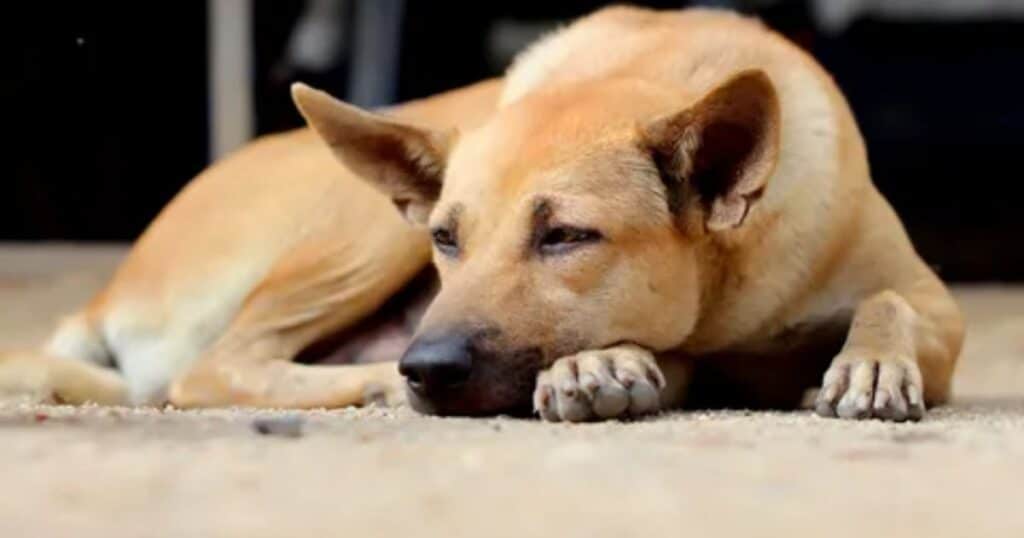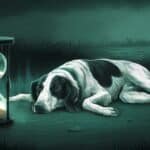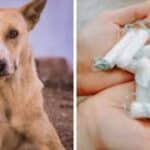As a dog owner, you’ve probably experienced your fair share of messy situations. But when your furry friend starts leaking clear fluid, it can be particularly concerning. Don’t worry – you’re not alone in this sticky situation! This guide will walk you through everything you need to know about canine discharge, from identifying the problem to seeking proper treatment. So, let’s dive in and get to the bottom of this dripping dilemma!
Different Types of Canine Discharge
Before we focus on clear fluid, it’s important to understand that dogs can experience various types of discharge. Each type can indicate different health issues, so being able to distinguish between them is crucial for your pet’s well-being.
Clear Fluid
Clear fluid discharge is often the least alarming type, but it still warrants attention. This glandular secretion can originate from different areas of your dog’s body, most commonly the anal or genital region. While it might not always signal a serious problem, it’s essential to monitor the situation closely.
Common sources of clear fluid discharge:
- Anal glands
- Urinary tract
- Vaginal area (in female dogs)
“Clear discharge isn’t always cause for panic, but it’s definitely a sign your pup needs some extra TLC.” –
Dr. Sarah Wooten, DVM
Other Types
While we’re focusing on clear fluid today, it’s worth noting that other types of discharge can be more concerning. These include:
- Blood-tinged discharge
- Yellow or green-colored discharge
- Thick, pus-like discharge
If you notice any of these, it’s time to speed-dial your vet. These could indicate more serious issues like infections, injuries, or even tumors.
READ MORE: Can Dogs Eat Salt And Vinegar Chips Safely?
Why Is My Female Dog Leaking Clear Fluid From Anus?
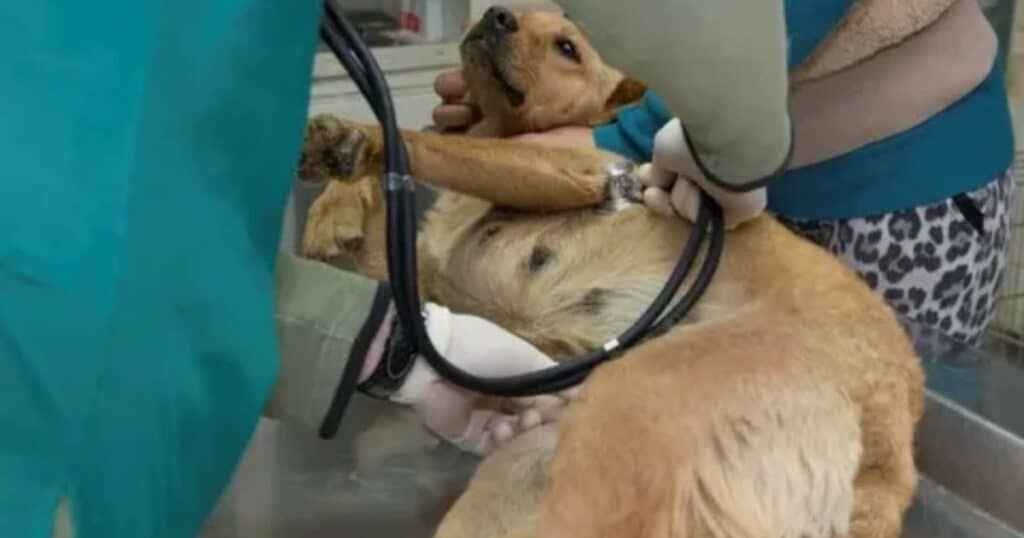
Now, let’s zero in on a common scenario: clear fluid leaking from your female dog’s anus. This can be particularly perplexing and, let’s face it, a bit gross. But understanding the root causes can help you tackle the problem head-on.
Identification of Symptoms
Before we dive into the causes, let’s talk about how to spot the problem. Here are some signs that your dog might be dealing with anal discharge:
- Excessive licking of the anal area
- Scooting or dragging their bottom across the floor
- A persistent wet or damp area around the anus
- Foul odor coming from the rear end
- Visible clear fluid when you inspect the area
Case Study: Bella the Beagle Bella’s owner noticed her usually playful pup becoming withdrawn and constantly licking her rear end. Upon closer inspection, she saw clear fluid around Bella’s anus and immediately scheduled a vet appointment. The diagnosis? Impacted anal glands – a common but treatable condition.
Common Causes in Female Dogs
There are several reasons why your female dog might be leaking clear fluid from her anus. Let’s break them down:
- Anal Gland Issues: Dogs have two small glands on either side of their anus that normally express small amounts of fluid during defecation. Sometimes, these glands can become impacted or infected, leading to excessive discharge.
- Urinary Incontinence: This is especially common in spayed females and older dogs. Weakened bladder muscles can lead to involuntary urine leakage, which might be mistaken for anal discharge.
- Infections: Urinary tract infections (UTIs) or reproductive system infections can cause clear discharge.
- Hormonal Imbalances: Changes in hormone levels, particularly in unspayed females, can lead to various types of discharge.
- Digestive Issues: Sometimes, digestive problems can cause excessive fluid in the stool, leading to leakage.
| Cause | Symptoms | Common in |
| Anal Gland Issues | Scooting, licking, foul odor | All dogs, especially small breeds |
| Urinary Incontinence | Wet spots where dog has been lying | Spayed females, older dogs |
| Infections | Frequent urination, discomfort | All dogs |
| Hormonal Imbalances | Changes in behavior, irregular heat cycles | Unspayed females |
| Digestive Issues | Changes in stool consistency, appetite changes | All dogs |
First Aid for Minor Leaks of Clear Fluid in Dogs
If you’ve noticed your dog leaking clear fluid, don’t panic! There are some steps you can take at home to manage the situation before you can get to a vet.
Clean the Affected Area
Keeping the area clean is crucial to prevent infections and keep your dog comfortable. Here’s how to do it:
- Gather your supplies: pet-safe wipes, warm water, mild pet shampoo, and clean towels.
- Gently clean the area with pet-safe wipes or a damp cloth.
- If necessary, use a small amount of pet shampoo to thoroughly clean the area.
- Rinse well with warm water.
- Pat dry with a clean towel.
Pro Tip: Consider using a pet-safe moisturizer around the area to prevent irritation from frequent cleaning.
Monitor Your Dog for More Symptoms
While cleaning helps, it’s important to keep a close eye on your dog for any changes or additional symptoms. Watch out for:
- Increased thirst or urination
- Changes in appetite
- Lethargy or unusual behavior
- Persistent or worsening discharge
- Signs of pain or discomfort
If you notice any of these symptoms, it’s time to consult your vet.
When and How to Express Canine Anal Glands?
Anal gland issues are a common cause of clear fluid leakage in dogs. Sometimes, these glands need a little help emptying properly. But before you roll up your sleeves, let’s talk about when and how to do this.
Recognize When Glands Need Emptying
Your dog might need their anal glands expressed if you notice:
- Persistent scooting or dragging their bottom
- Excessive licking or biting at the anal area
- A strong, fishy odor
- Visible swelling around the anus
Learn How to Safely Express Your Dog’s Anal Glands at Home
Warning: This process can be messy and uncomfortable for both you and your dog. If you’re squeamish or unsure, it’s best to leave this to the professionals.
If you’re brave enough to try, here’s a basic guide:
- Put on gloves and have plenty of paper towels ready.
- Locate the glands at 4 and 8 o’clock positions around the anus.
- Gently apply pressure to the glands, moving your fingers in a milking motion.
- Clean the area thoroughly afterward.
Know Which Breeds May Need to Have Their Glands Expressed More Often
Some breeds are more prone to anal gland issues:
- Small breeds (Chihuahuas, Toy Poodles)
- Cocker Spaniels
- Basset Hounds
- Beagles
If you own one of these breeds, be extra vigilant about anal gland health.
Understand Why Dogs Might Hurt During or After Having Their Glands Expressed
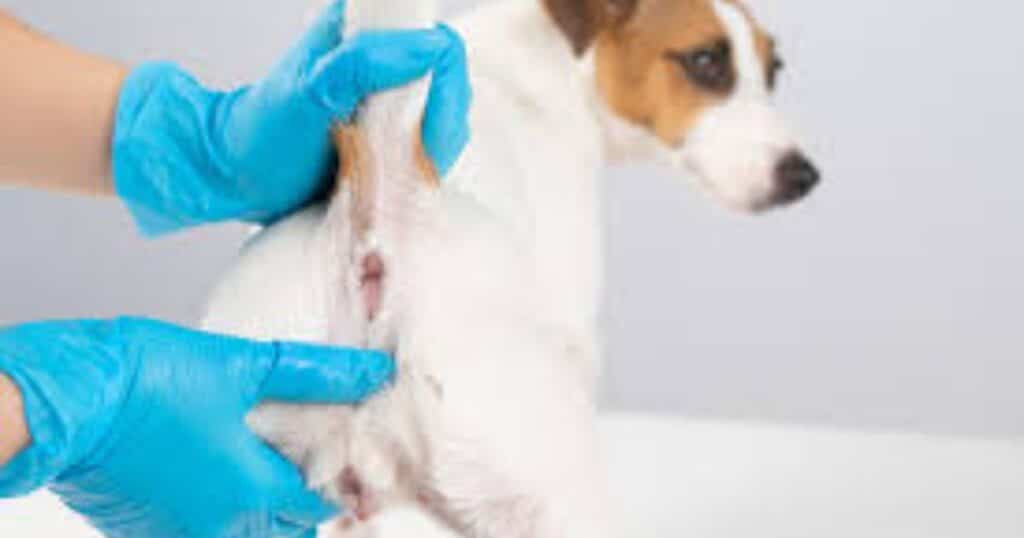
Anal gland expression can be uncomfortable for dogs, especially if the glands are impacted or infected. Signs of pain include:
- Yelping or crying during the procedure
- Reluctance to sit
- Excessive licking of the area afterward
If your dog seems to be in significant pain, stop the procedure and consult a vet.
Seeking Professional Veterinary Care
While home care is important, sometimes you need to call in the experts. Let’s talk about when and why you should seek professional help.
Why It’s Critical to Consult a Vet
A veterinarian can:
- Accurately diagnose the underlying cause of the discharge
- Provide appropriate treatment, including medications if necessary
- Perform professional anal gland expression if needed
- Conduct tests to rule out serious conditions
Don’t hesitate to seek veterinary care if:
- The discharge persists for more than a day or two
- There’s blood in the discharge
- Your dog seems to be in pain
- You notice other concerning symptoms
Preventive Measures to Avoid Future Leaking
Prevention is always better than cure. Here are some steps you can take to minimize the risk of future leaking:
- Diet: A high-fiber diet can help naturally express anal glands during defecation.
- Exercise: Regular physical activity promotes overall health and can help with bowel movements.
- Weight Management: Overweight dogs are more prone to anal gland issues.
- Regular Check-ups: Don’t skip those annual vet visits!
- Grooming: Keep the anal area clean and trimmed.
Summary
Dealing with a dog leaking clear fluid can be worrying, but armed with the right knowledge, you can handle it like a pro. Remember:
- Identify the type and source of the discharge
- Clean the affected area regularly
- Monitor for additional symptoms
- Know when to express anal glands (and when to leave it to the pros)
- Seek veterinary care when necessary
- Focus on prevention through diet, exercise, and regular check-ups
Your furry friend depends on you to keep them healthy and comfortable. With a little patience and care, you can help them through this messy situation and get back to enjoying those tail-wagging good times!
ALSO READ THIS POST: My Dog Shakes, Acts Weird, Won’t Eat: What’s Up?
FAQ
What are the potential causes of clear fluid leaking from my dog?
Clear fluid leakage can be caused by various factors, including anal gland issues, urinary incontinence, infections, hormonal imbalances, or digestive problems. It’s important to observe any accompanying symptoms and consult with a vet for an accurate diagnosis.
Should I be concerned if my dog is leaking clear fluid?
While clear fluid isn’t always a sign of a serious problem, it’s certainly something that warrants attention. If the leaking persists for more than a day or two, or if it’s accompanied by other symptoms like pain or behavioral changes, it’s best to consult with a veterinarian.
How should I initially respond if my dog is leaking clear fluid?
First, clean the affected area gently with pet-safe wipes or a damp cloth. Monitor your dog for any additional symptoms or changes in behavior. If the problem persists or worsens, schedule a vet appointment.
When is it necessary to seek veterinary care for my dog leaking clear fluid?
Seek veterinary care if the leaking persists for more than a couple of days, if there’s blood in the discharge, if your dog seems to be in pain, or if you notice other concerning symptoms like changes in appetite or behavior.
Are there any home remedies or treatments for my dog leaking clear fluid?
While professional care is often necessary, you can help manage the situation at home by keeping the area clean, monitoring for changes, and ensuring your dog stays hydrated. Dietary changes, like increasing fiber intake, may help with anal gland issues, but always consult with a vet before making significant changes to your dog’s diet or care routine.

Davin Connor is an experienced author with 3 years in pets writing. Known for concise, informative content, he shares expertise on pet care, behavior, and health through his engaging articles.
